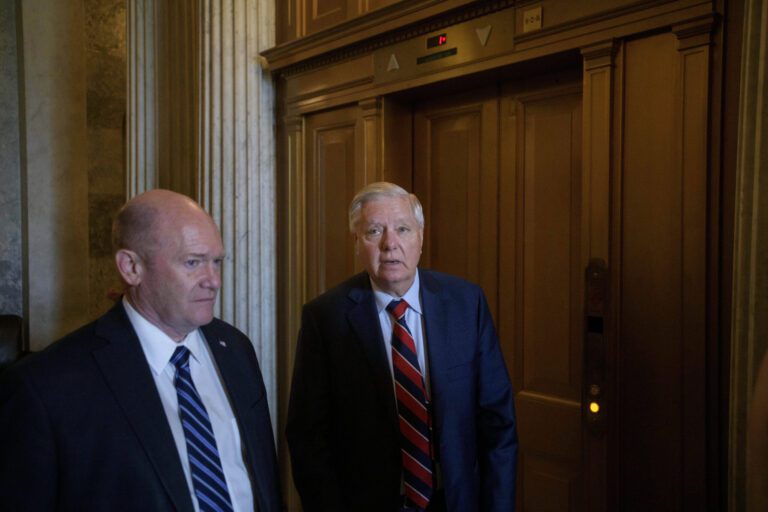Congressional Power Under Threat: Senator Coons on Trump’s Pocket Rescission
President Trump’s recent pocket rescission, cutting $5 billion from foreign aid spending, has ignited serious concerns within Congress. Senator Chris Coons, a key player in the Senate Appropriations Committee and a moderate Democratic voice, is warning that this decision could jeopardize any future spending agreements unless Senate Republicans reassert Congress’s constitutional authority over thefiscal process.
Overview of the Pocket Rescission Controversy
The pocket rescission, which allows the president to unilaterally cut previously approved funding, has raised alarm bells for many lawmakers. Senator Coons emphasizes the critical nature of this issue, declaring it a "red line" that he cannot accept. His stance underscores the historical principle that Congress holds the "power of the purse," an essential function in American governance.
Key Points:
- President’s Action: Trump’s pocket rescission aims to cut $5 billion in foreign aid, an amount approved in a bipartisan funding deal.
- Senator Coons’s Position: As a member of the Appropriations Committee, Coons is uniquely positioned to challenge this move, stressing that it undermines legislative authority.
Senator Coons: A Call to Action for Republicans
During an interview on NPR’s “Morning Edition,” Coons expressed significant frustration with Senate Republicans, urging them to stand up for Congressional power. He stated, "If they continue in those efforts, I won’t support keeping the government open."
Immediate Risks
Senator Coons highlighted the following concerns regarding the rescission:
- Legislative Overreach: He believes this move is part of a broader strategy to erode Congressional authority.
- Impact on Bipartisanship: Coons emphasizes the need for cooperation across party lines to protect legislative processes.
Implications of the Pocket Rescission
Should Republicans fail to push back against the rescission, Coons indicated that Democrats would leverage procedural tactics to protest, possibly grinding Senate operations to a halt. He specifically mentioned:
- Blocking Nominees: Democrats may refuse to support Trump’s nominees as a measure of protest.
- Stalling Government Funding: Without a shift in course from Republicans, Coons suggested that funding the government could become contentious.
The Power Struggle in Congress
The stakes are high as the government faces a potential shutdown on September 30 if an agreement is not reached. Senator Coons clearly articulates his fears about the implications of the president’s actions:
- Congress’s Role: "It breaks the basic role of Congress," he remarked, highlighting the critical need for lawmakers to check presidential power.
- Future Governance: Coons stated, "Our framers wanted us to be a constraint on presidential power," emphasizing the foundational role of Congress in democratic governance.
What’s Next for Senate Democrats?
In light of the challenges posed by the pocket rescission, Coons confirmed that Senate Democrats will be strategizing their response in the coming weeks. Key actions include:
- Debate and Discussion: Ongoing discussions among Senate Democrats regarding their next moves will be crucial as the deadline approaches.
- Monitoring Legal Proceedings: Coons expressed hope that courts might intervene to block the pocket rescission, thereby restoring Congressional authority.
Conclusion: A Call for Unity
Senator Coons’s candid assessment serves as a rallying cry for both Democratic senators and responsible Republican colleagues. The potential for governmental dysfunction looms if legislative powers are not upheld. Coons’ argument is clear:
- Congress must work together to maintain its authority and responsibility.
- The health of American democracy relies on a robust and influential legislative branch.
For further information and updates on the implications of the pocket rescission and Congressional responses, visit reliable sources like NPR and CNN for ongoing coverage.


